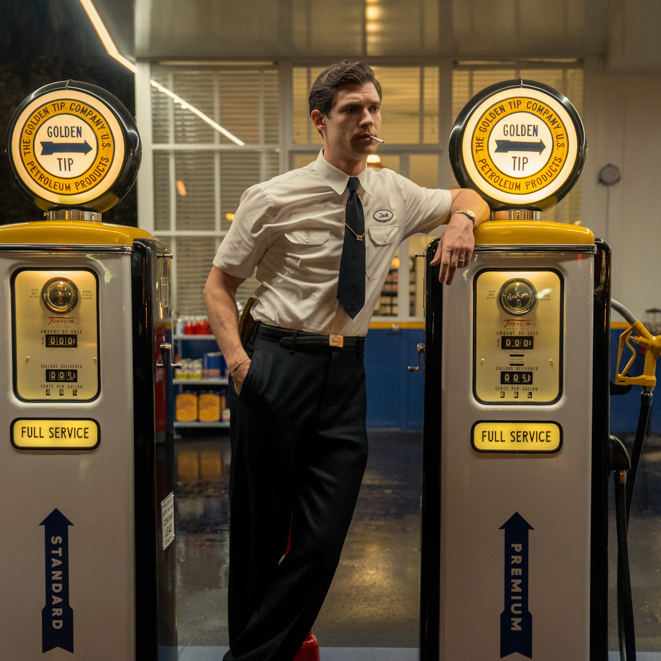“The movies hawk an image of wholesome American virtue,” declares a grizzled gas station manager in Hollywood, the new Netflix series from the Glee creator Ryan Murphy. “The folks making the movies? Rotten to the core.”
And as Murphy delves into and pointedly rewrites the history of Tinseltown in its late-1940s heyday, he gives us a vision of showbiz steeped in illicit sex. Ernie the gas station manager (Dylan McDermott) is pimping out his pump attendants to stars and studio workers. Or sometimes showbiz figures whose homosexuality is against the law; the composer Cole Porter, say, sitting expectantly with trousers off but garters on in a trailer on the forecourt.

